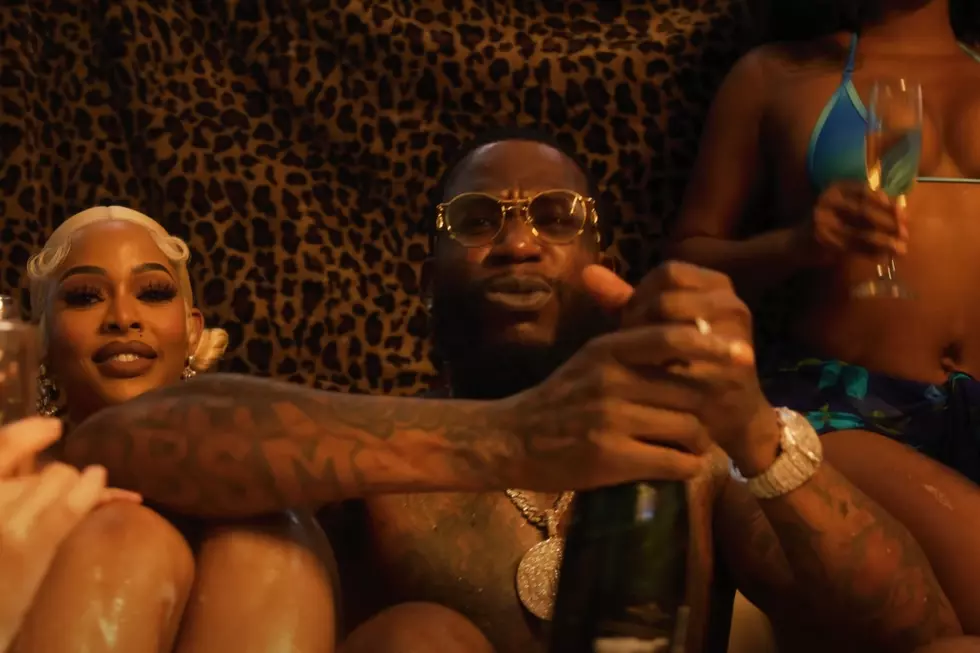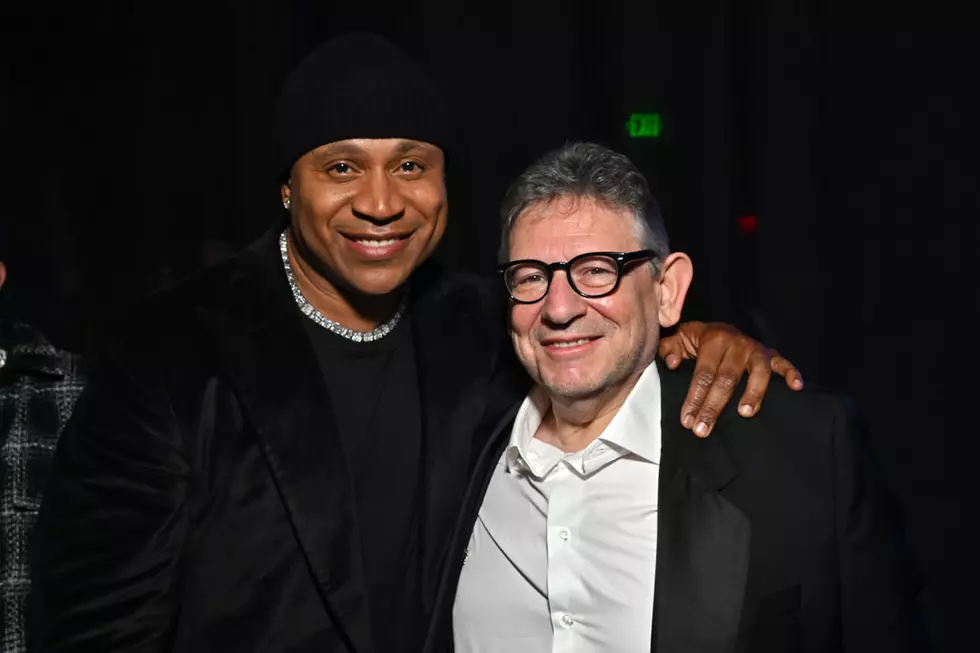
Hear What Jeezy And Gucci Mane’s Former Manager Coach K Has To Say
While other cities have risen and fallen in relevance and creativity, Atlanta has remained a hip-hop Mecca. From the warped, futuristic vistas of OutKast to the chilly, emotional valleys of Future, the city has become its own self-sustaining and thriving rap galaxy, transforming other solar systems along the way but still retaining its own distinct, isolated atmosphere. In addition to the bright shining stars—T.I., Young Jeezy, Gucci Mane, Waka Flocka—the city, like any complex system, needs an infrastructure to operate and it needs guardians to quietly watch over it. Coach K, a.k.a. Kevin Lee, is one of those watchmen.
But sometimes, the watchmen come out of the shadows. The 42-year-old music industry veteran made headlines last week when one of his former clients, Gucci Mane, exploded on Twitter, hurling a series of wild accusations and claims at former colleagues and friends. At one point, towards the end of the meltdown, he claimed his account had been hacked by his ex-manager. Coach K handled the situation like someone used to staying out of the limelight: He issued a brief statement saying he hadn’t managed Gucci Mane for months and declined to comment further.
It’s that type of professionalism that has suited Coach K well in his time in the music business, a period during which he managed some of hip-hop’s most talented, hard-working and volatile personalities. Though he shares his nickname with Duke’s quick-tempered basketball coach, Coach K is a quiet, reflective guy, as he revealed during a phone conversation with XXL that spanned his career working with icons like Young Jeezy, Gucci Mane and now the emerging ATLiens Migos.
“The hardest part is keeping all the bullshit away,” he says when asked about the worst aspects of managing an artist. “As a manager you're the liaison between the artist and the world. You gotta protect them and shield them. But at the same time they're artists so they're going to do what they do."
Raised in a single parent household in Indianapolis, Ind. by a mother who worked at an RCA record pressing plant, Lee grew up in a house filled with music fresh from the factory. He remembers his mother bringing him home records and tapes, mostly R&B and jazz. One day she bought him a copy of the Sugarhill Gang's "Rapper’s Delight," which sparked a lifelong obsession with hip-hop.
"I was hooked on rap immediately,” he explains. “Me and one of my best friends, his parents had bought him two turntables, so we just started spending our money buying records.Then my cousin, he DJ'd so I got engulfed in buying records."
After studying economics at Saint Augustine University in Raleigh, N.C. on a basketball scholarship, Coach K returned to Indianapolis and started a record label called Universal Stars with some friends. With an A&R department and a management section, the business provided Coach K with his first music business experience, but it didn’t pan out. Looking to make a new start, Coach K moved to Atlanta in January 1997, less than a year after OutKast had released ATLiens and months before Lil Jon And The East Side Boyz would drop their debut full-length, Get Crunk, Who U Wit: Da Album.
Atlanta’s hip-hop community was brimming with talent waiting to be exposed. Luckily, Coach K arrived with some helpful connections: A childhood friend of his, then-Atlanta Hawks power forward Al Henderson, was starting a record label and wanted Coach K to run the A&R department. From there, he started managing Pastor Troy and establishing himself in the city’s rap world, developing his identity as a tastemaker who could take regional artists and repackage them for a larger audience.
"I think it's about recognizing talent,” explains Zaytoven, the celebrated producer and frequent Coach K collaborator behind Migos' “Versace” and Gucci and Jeezy’s “Icy.” “It's the same gift I have. When I decided to work with Migos it's like I almost foresaw that they were going to be big. Coach K does the same thing.”
To examine Coach K’s role in Atlanta hip-hop, XXL spoke with him about three of his biggest artists—Young Jeezy, Gucci Mane and Migos—and the role he played in their development, growth and, in the case of Jeezy and Gucci, his eventual split from them. —Dan Jackson
Jeezy
"I had a friend who managed a studio and he called me one day and was like, 'Yo, I have this kid up here in the studio who you should come check out.' So I came up to the studio and I came to bring my producer's beats up there and show some beats to them, and it was Young Jeezy, but at the time he was Little J. He wasn't even rapping a lot. Then me and him started rocking and we established a good relationship and I told him he needed to rap, and he was like, 'I'm a CEO.' But I told him, 'Man, you gotta rap. You got a dope voice. All your artists are rapping about your lifestyle.'
"Jeezy once called me at three o'clock in the morning...It's three in the morning and he's like, 'I found it. I found my sound. I got it.' I went and met him at a gas station off Highway 75 and he played me this record, 'Hold Up,' and I lost my mind. I was like, 'Dude, you got it. You found who you are.' So we put that mixtape, Streets Is Watching, out. Prior to that I put out so many posters and fliers. I'd been getting tired of putting those up and I was like, 'We need to put some music out.' I’d always liked mixtapes and I’d followed the whole trend of the New York mixtape scene. Like, 50 Cent was doing his mixtape run then and he was putting original music on them instead of rapping over people's beats. So I took what 50 was doing in New York and I did it in Atlanta.
"No one else was doing it at the time. Not with original records. They were keeping them for their albums. We did it with the mixtape. We pressed up 30,000 units and we gave them away all in one weekend, the Birthday Bash weekend in Atlanta. That was the summer of 2004. That was July; by September we started getting calls for shows and that was when it took off. That's when the streets were just going crazy. In January 2005, we put out the biggest mixtape to ever hit the streets, Trap Or Die. It was something that had never been done before. We did a whole campaign for the mixtape release party. 4,000 people came to the releases party. We literally had like a sweat shop set up packaging the DVDs, shrink wrapping them with blow driers. It was crazy. We weren't really prepared for what we had. It exploded."
On the split: "We came to a disagreement. I guess he felt like he could do it himself. Surely, I'm not gonna say it's obvious, but he needed my help."
Gucci Mane
"When I got with Gucci he already had his deal at Warner Bros. When I came aboard, Warner knew my history of making records. Those first three Jeezy records I A&R'd...Warner knew I was good at making records. I was his manager but I was his A&R too. I helped put the album together. That's when we put out The State Vs. Radric Davis.
"It's about intertwining the circles and the subcultures. That's what I was able to do with Gucci. Gucci did two mixtapes with Diplo that were crazy. We took dubstep and intertwined it with trap—before they called it trap then. That's what we're doing with Migos now. The worlds are intertwining. I introduced them to the fashion world, the trap world, the hipster world."
On the split: "I haven't been around him in six months. I may have done things a little bit different, but I just wish him the best."
Migos
"I like to take an artist and take them to the end. That's one of my strongest areas...A lot of labels don't have the development part in the system anymore. They want stuff already ready. They don't take the time to get an artist ready. That's my role. That's why I started my own label, Quality Control Music, that's what we're doing. Developing artists and getting them ready, like the Migos. Me and my team took the Migos and within six months it's like a frenzy. We put them in the system. With the Migos, everything I learned from the previous artists, every mistake—there's been no mistakes with these guys. It's just been fast forward. I already made all the mistakes.
"The Migos brand is young, fly and fresh. They have a new style. They have a cadence that hasn't been done in a long time. Seriously, that cadence is crazy. It's fresh and new. I'm starting to hear it a lot and it's making me mad. You hear guys trying to do their cadence on different songs and they can't do it as well. I was telling the guys the other day, 'Man, you hear guys rapping just like you but it's one verse. They might steal your style for one verse but they can't consistently do it.'"
More From XXL









